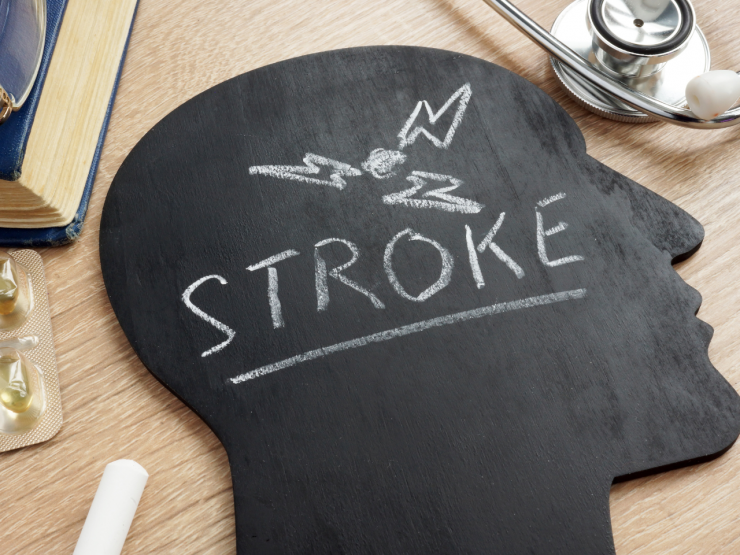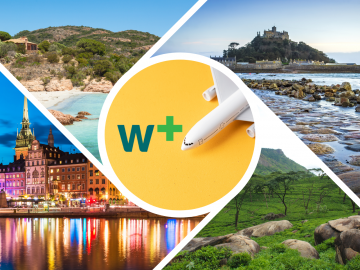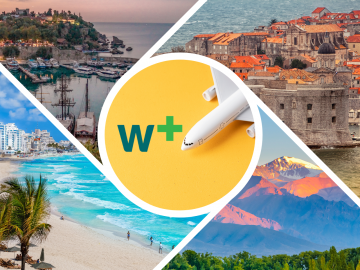Action on Stroke Month
Every May, The Stroke Association organises Make May Purple/Action on Stroke Month.
The purpose of the month is to raise public awareness of strokes, their effects on victims and their friends and family, as well as the signs and symptoms of strokes, their causes, what occurs during a stroke, and what to do if you or someone you know has one.
Are you aware of the primary signs when someone is experiencing a stroke? Your response to this emergency could have a significant impact on a person's capacity to survive and recover.
What is a stroke?
Stroke doesn’t discriminate and can affect anyone, regardless of, age and gender.
It is essential that the brain has a constant oxygen supply in order to keep it functioning properly and maintain healthy brain cells. This is delivered through a complex network of blood vessels that supply blood rich in oxygen to and around the brain. Should this flow of blood become disrupted it results in a stroke. A stroke occurs when a blockage such as a clot cuts off the blood supply to a part of the brain or in the event a blood vessel bursts resulting in damage or destruction to parts of the brain. There are two main types of strokes:
Ischaemic stroke: Responsible for around 80% of all strokes, an Ischaemic stroke is resultant of a clot which has caused the blood vessel within the brain to become blocked. This causes them to become narrow and in turn restricts blood flow, causing the death of brain cells in that part of the brain due to insufficient oxygen.
Haemorrhagic stroke: The rarer of the two types of strokes is a haemorrhagic stroke, which occurs when there is bleeding around or in the brain from a ruptured or burst blood vessel.
There are more than 100,000 strokes every year in the UK.
What are the causes of stroke?
In some cases when the blood supply to the brain becomes disrupted it is a result of natural causes, for example, a genetic issue which heightens the risk of stroke or due to blood vessels that have become weakened.
Sometimes though it is due to lifestyle factors and habits such as:
· Consuming excessive alcohol
· A lack of exercise
· Being overweight and eating too much
· Smoking
There are also some medical conditions which heighten the risk of suffering a stroke, including but not limited to:
· High blood pressure
· High cholesterol
· Diabetes
· Carotid artery disease
· Atrial fibrillation
The fourth leading cause of death in the UK is stroke, with around 35,000 deaths every year and is a major contributor to disability connected with a wider variety of disabilities than any other disease.
Complications caused by & recovery after a stroke
After experiencing a stroke there are an array of complications the survivor may experience during and after recovery, which includes but are not limited to.
· Emotional issues
· Behavioural changes and ability to look after themselves.
· Paralysis and weakness
· Issues with muscle movement, coordination, and balance
· Difficulty swallowing and or talking
· Fatigue
The time it takes to recover after a stroke varies between people, depending on the type and severity. Recovery can take weeks, months or potentially years. Unfortunately, some people are left with long-term or lifelong disabilities.
The journey of rehabilitation starts in the hospital a few days post-stroke. Healthcare professionals will help a patient with rehab which assists in the transition from hospital to home.
Rehab constitutes:
· Physical therapy
· Speech therapy
· Occupational therapy
A combination of therapy and medications will help with mental health conditions such as depression and anxiety which are common in stroke survivors. There are also support groups which are available to patients to facilitate adjusting to life post-stroke.
Studies show that help and support from friends and family can aid in relieving anxiety, depression and fear after a stroke. Therefore, we must show and let our loved ones or friends who have experienced a stroke know we are there for them, to listen and help.
How to reduce your chances of having a stroke
To reduce the chances of having a stroke, we must consider our lifestyle choices and habits. Making small adjustments can prevent the risk of issues such as, arteries becoming clogged or getting high blood pressure.
Some of the changes you can implement are:
· Eating a healthy and balanced diet
· Get regular exercise
· Avoid or stop smoking
· Stop or reduce alcohol consumption
· Be mindful of weight and cholesterol
Those who have already experienced a stroke are at a higher risk of having another, so they must understand the contributing factors which caused the stroke and how best to avoid or treat them in future. Seek guidance and advice from your GP on best practices and your risk of stroke.
Spotting the symptoms & What to do in the event of a stroke
• FACE: Has their face fallen on one side, are they able to smile?
• ARMS: Do they have the ability to raise their arms and hold them there?
• SPEECH: Slurred or incoherent speech?
• TIME: Call 999 if you spot any of these symptoms!
The time it takes you to react in the event of a stroke will affect the victim’s chances of recovery and survival. You must call 999 as quickly as possible and ask for an ambulance, note the time and symptoms the victim is experiencing and if needed perform CPR.
Support and advice
There are various support groups and charities that can provide advice, guidance and support for victims, their friends and families when navigating the days, months and years following a stroke.
· Stroke Association: https://www.stroke.org.uk/ or call: 0300 3300 740
· The Arni Institute: https://arni.uk.com/ or call: 0203 053 0111
· Same you: https://www.sameyou.org/
Data Sourced from*
https://www.brainresearchuk.org.uk/
https://www.think-ahead.org.uk/



